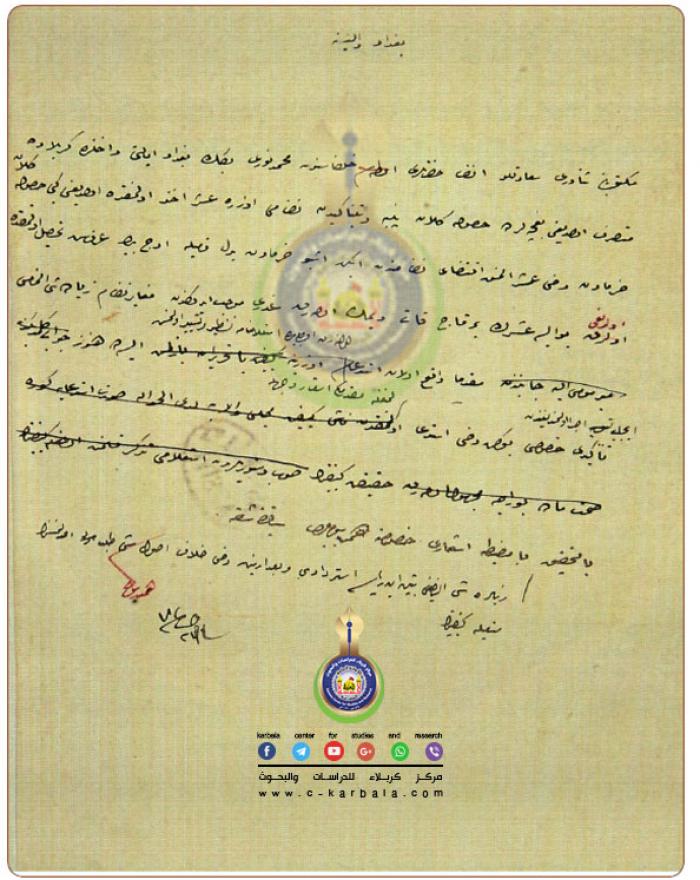The Baghdad state government has been characterized by collecting the fees on the tobacco and dates crops through an order issued by the Ottoman authorities back then.
According to the document issued by the governor of Baghdad in 12th of the Islamic month of Thul Hijja in 1226 Hijri - 1856 AD concerning the system of collecting the taxes of tobacco and date crops in the Karbala district, the amount of fees on the dates crop has reached (3000) piasters, but what happened later was the increase of this percentage on annual basis, in an explicit violation to the instructions of the compliance system.
Therefore, it was decided to investigate the officials responsible for this matter, as the deducted money has been returned to the citizens, in addition to informing the Ottoman Sultanate and government about the results of the investigation.
.................................. ....................
Source:
The Karbala's Comprehensive Civilization Encyclopedia- Documentary Section. Vol. 4.




